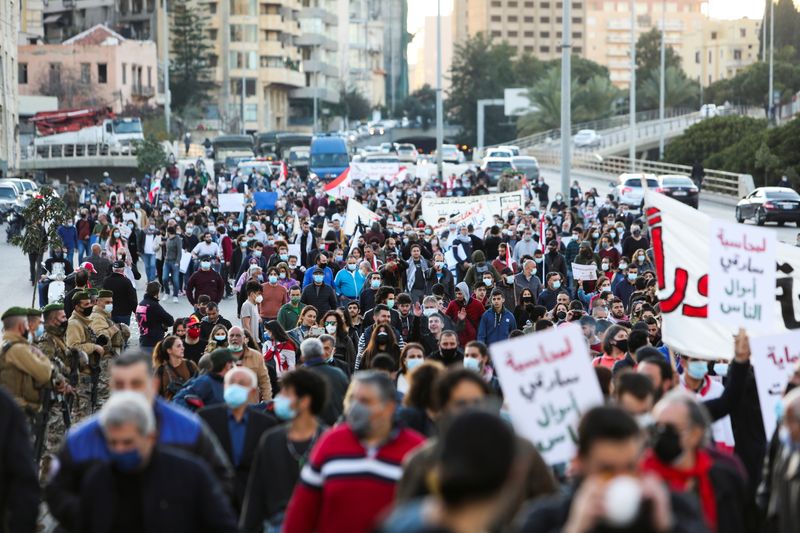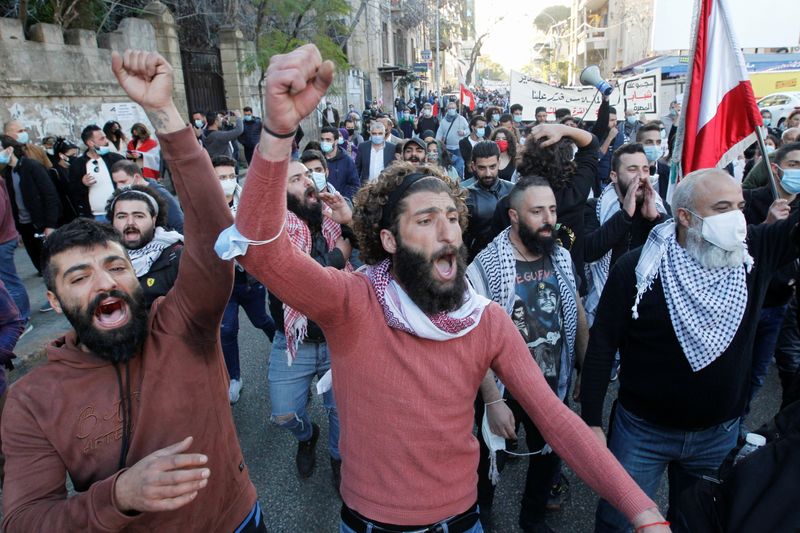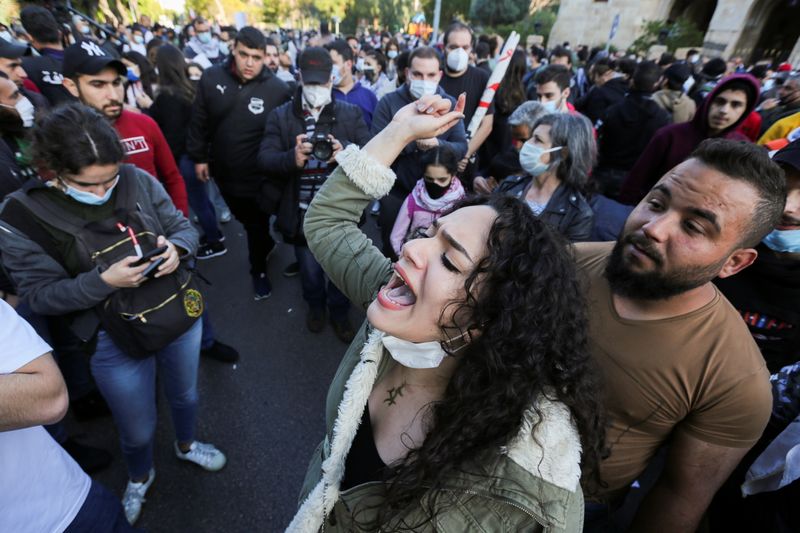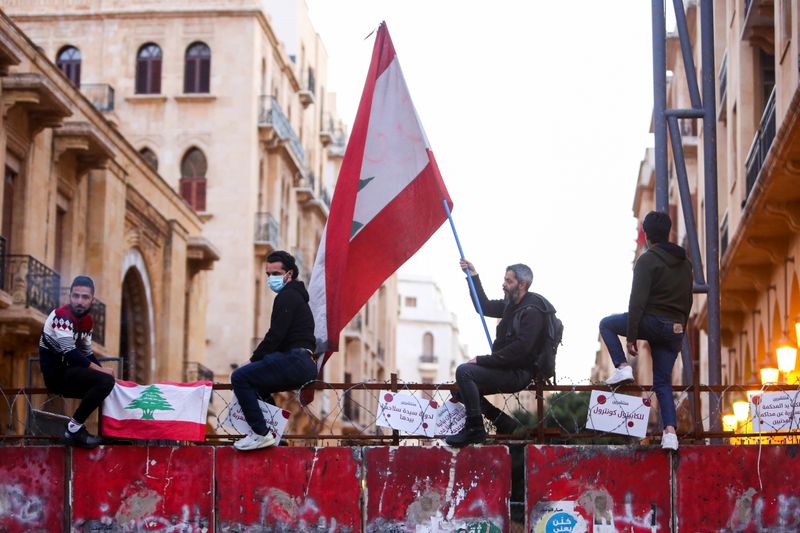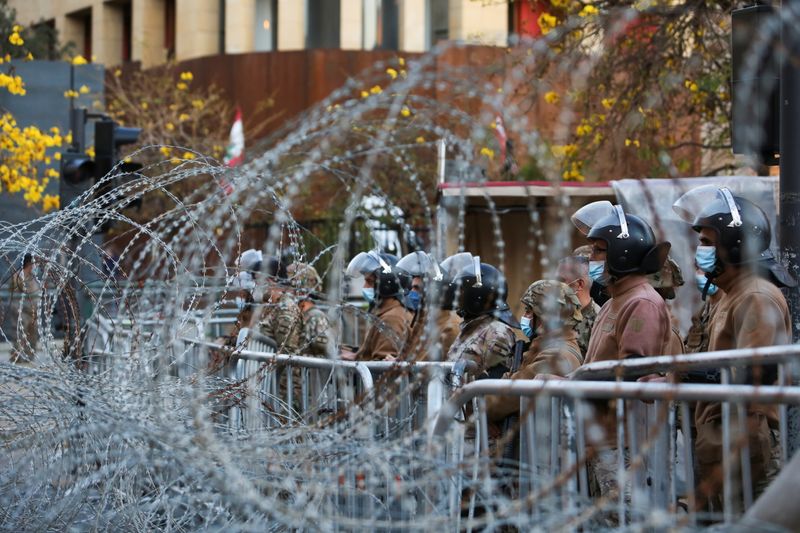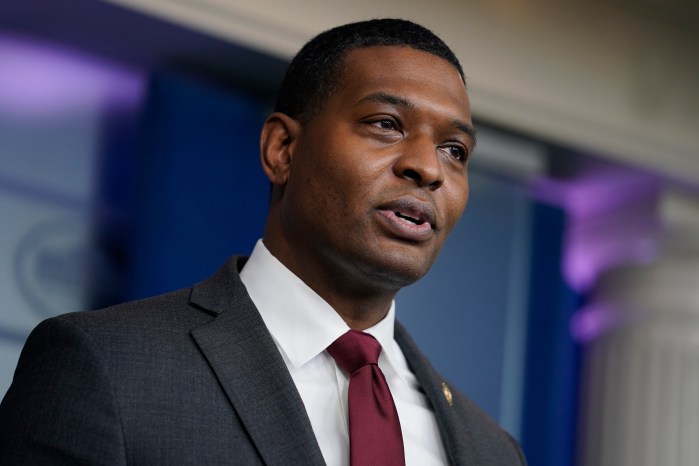BEIRUT (Reuters) – Thousands marched in central Beirut on Friday demanding a new independent government to lift Lebanon out of its deepening crisis as frustration over the country’s financial meltdown grew.
Lebanon’s economic crisis is posing the biggest threat to its stability since the 1975-1990 civil war.
Erupting in late 2019, it has since wiped out jobs, locked people out of their bank deposits, slashed 85% of the value of its currency and raised the risk of widespread hunger.
“In light of the terrible failure of those in power socially and politically we are going to the streets to ask for a new independent government and an alternative to the current system,” a statement by one group of protesters said.
Lebanon’s problems were compounded after a port explosion in August devastated whole tracts of Beirut, killing 200 people and prompting the government to resign, leaving the country rudderless as it sinks deeper into financial collapse.
Prime Minister Hassan Diab’s cabinet has stayed on in a caretaker capacity until a new cabinet is formed.
But prime minister-designate Saad al-Hariri, nominated in October, is at loggerheads with President Michel Aoun and has been unable to form a new government to carry out much needed reforms to unlock international aid.
“We are hungry. It is that simple. That is why we are taking part here,” said one protester on the streets with his family who declined to be named.
The protest comes after two days of relative calm since nationwide roadblocks persisted for more than a week as groups of demonstrators, angry at the currency’s tumble to a new low, burnt tyres to block streets.
Several caretaker ministers have made alarming public remarks in the past week about the state of Lebanon’s security and finances.
Interior minister Mohammed Fahmy said security had all but broken down with “all possibilities open”, while energy minister Raymond Ghajar warned that cash for power generation was running out fast and Lebanon could be in total darkness by end of month.
Despite the warnings, there has been no movement on the political front.
The lack of action prompted French foreign minister Jean-Yves le Drian to say that time was running out to prevent Lebanon collapsing and he could see no sign that the country’s politicians were doing what they could to save it.
France has spearheaded international efforts to rescue the former French protectorate, trying to use Paris’ historical influence to persuade squabbling politicians to adopt a reform roadmap.
(Reporting By Maha El Dahan and Issam Abdallah, Editing by William Maclean)

